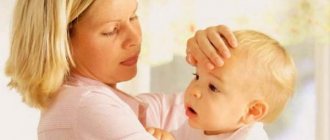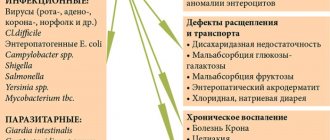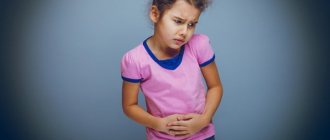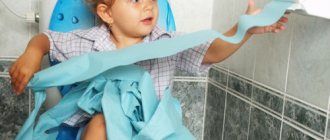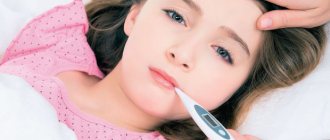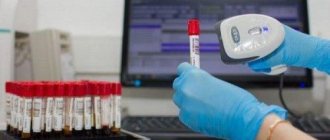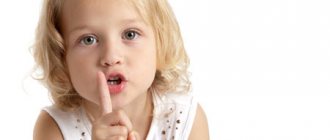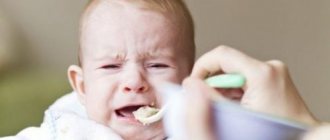Doctors Cost
Price list Doctors clinic
Diarrhea, or diarrhea, is frequent loose stools, usually caused by accelerated intestinal motility or impaired absorption of water in the large intestine. Also, the mechanism of this symptom may be the production of large amounts of mucus. This is a fairly common problem in children, which is associated with the immaturity of the digestive system and immunity, and susceptibility to infectious diseases. Treatment of diarrhea in children can be carried out by both a pediatrician and specialized specialists - a pediatric gastroenterologist, an allergist, an infectious disease specialist, depending on the causes of the symptom.
Causes of diarrhea
To figure out how to help a child with diarrhea, it is necessary to correctly determine the causes of diarrhea, the most common of which are:
Eating disorder
If the baby is breastfed, the cause of diarrhea may be a change in the mother's diet. In older children, stomach upset may occur when eating any foods that cause a similar reaction. For example, vegetables and fruits containing a lot of fiber.
Drug-induced diarrhea
In this case, diarrhea is the body’s response to taking medications (for example, antibiotics) that affect the intestinal microflora or irritate the mucous membrane. In this case, diarrhea may be accompanied by abdominal pain.
Gastrointestinal infections
Typically, with intestinal infections, not only symptoms such as loose stools occur, but also vomiting, fever, abdominal pain, fever, and chills.
External factors
For example, a change in climate and nutrition while traveling.
Colds
Sometimes colds can cause not only a runny nose, cough, chills and sore throat, but also diarrhea (for example, with rotavirus infection).
Nervous disorders
Severe stress and anxiety negatively affect the child’s body and can also cause digestive upset.
Differences between diarrhea and loose stools
Any mother should clearly know what distinguishes diarrhea in a 1-2 year old child without body temperature from loose stool. Loose stools may appear periodically. All children, without exception, face this. Loose stools can be caused by drinking a large amount of juice, as well as a consequence of a viral infection or some other disease.
Diarrhea is very loose stool. With diarrhea, the child goes to the toilet up to five times a day. This malaise poses a danger to the child - it provokes a lack of water in the body.
Features of diarrhea
Problems with bowel movements in a child can occur in any situation and at any time of the year. But more often this happens in the hot summer, since in the heat food, even the most “harmless”, quickly deteriorates due to the proliferation of bacteria, which can lead to poisoning and diarrhea.
However, there is another very common cause of diarrhea, which is more often observed in winter and early spring: gastrointestinal infections caused by rotaviruses (“intestinal flu”), which are well resistant to external factors and persist for a long time on household items, vegetables and fruits, in open waters. Such viruses can even withstand freezing, but die when boiled.
The main mechanisms of transmission of rotavirus are fecal-oral and contact-household. This means that the source of infection is an infected person who releases a large number of viral particles into the environment, which are transmitted at the contact and household level through unwashed hands or household items. It is also common to become infected by drinking contaminated water or food.
The duration of intestinal upset caused by rotavirus can vary - from several days to two weeks (in the acute form of the disease). The release of the virus in this type of infection can continue for a long time, which often leads to infection of other people.
Diagnosis of diarrhea
“SM-Doctor” is a modern medical center staffed by doctors with extensive experience.
Thanks to the use of the latest diagnostic techniques and a comprehensive assessment of the health status of each baby, our specialists can quickly and objectively identify the cause of diarrhea. Diagnosis of the causes of acute diarrhea is rarely critical. Based on the patient’s complaints, medical history and visual examination of the stool, an experienced doctor can establish a preliminary diagnosis at the first appointment. To confirm it, the doctor additionally prescribes a microscopic and bacteriological analysis of the patient’s stool.
Difficulties may arise when diagnosing chronic diarrhea. In this situation, doctors use the following methods to identify the root cause of the symptom:
- Intestinal irrigography is an x-ray procedure that allows you to assess the condition of the entire gastrointestinal tract;
- colonoscopy is an endoscopic method that involves inserting a thin probe with a camera into the cavity of the child’s large intestine;
- a number of specific laboratory tests aimed at identifying autoantibodies to viruses or directly to the intestinal mucosa.
If necessary, the child is referred for consultations with related specialists to exclude or confirm the presence of diseases of other internal organs and systems.
Nutrition for diarrhea
When answering the question of how to stop diarrhea in a 3-year-old child, it is important to organize the correct diet for the child, which will contribute to a speedy recovery.
First of all, you must adhere to the following rules:
- Strictly observe the rules of hygiene both in everyday life and when preparing and consuming food.
- The menu should be selected based on the child’s age. Children aged three years and older can eat boiled, baked, steamed and stewed foods, completely eliminating fatty, fried, spicy, salty and sweet foods. Infants should be fed breast milk and/or formula. Remember that in case of any stool disorder in a child of the first year of life, you must immediately consult a doctor!
- The number of meals should increase to 5-6 per day, but in small portions so as not to create a burden on the gastrointestinal tract.
- The foods you offer your child should be easily digestible to ensure that the body is supplied with minerals and vitamins that are lost during diarrhea.
- There should be no “chemicals” in the products; make sure there are no preservatives, dyes, etc. in the dishes.
- If possible, food should be pureed in a blender. This will make the products easier to digest.
- Do not cook for your child in advance; it is recommended to eat only freshly prepared meals. And warm, not hot or cold.
- The last meal should be no later than 2 hours before bedtime.
These rules should be followed not only during the illness, but also for three days after it.
Products that can be eaten by children with diarrhea: pureed vegetable soups (without frying or meat, only non-concentrated meat broth is allowed), mashed potatoes without oil, low-fat boiled fish, grated cottage cheese, crackers, steamed omelet, baked vegetables ( for example, apples and carrots), bananas and persimmons are welcome fruits, as they help restore reserves of vitamins, micro- and macroelements in the body.
Products that should be excluded from a child’s diet if there is an intestinal disorder: carbonated drinks, sweets, fresh bread, milk and dairy products (except for low-fat grated cottage cheese, as mentioned above), fatty meat and fish, offal, boiled eggs, everything salty, fatty, fried, canned food, mushrooms, freshly squeezed juices, fresh fruits and vegetables, spices and sauces.
How is diarrhea not accompanied by fever treated?
Diarrhea should be treated by drinking plenty of fluids, as well as introducing a large amount of vegetables and fruits into the child’s diet. But it is recommended to remove complex carbohydrates and carbonated water from the diet.
After the specialist determines the cause of diarrhea, some additions will be made to the baby’s diet. For example, a child may be prohibited from consuming whole milk, fiber and fats. With all the diet, the baby will have to be given medications prescribed by the doctor.
To prevent diarrhea in a two-year-old baby , parents should carefully monitor the child’s diet, as well as the cleanliness of his hands before and after eating, as well as after visiting the toilet. Children need to be taught hygiene skills from an early age.
What not to do for childhood diarrhea
Sometimes adults, out of ignorance, make a number of mistakes when treating childhood diarrhea, which can not only not bring relief, but even worsen the situation. To prevent this from happening, you should find out in advance what not to do if a child has diarrhea:
- "Hunger diet" Lack of nutrition further weakens the body and delays the healing process.
- Giving your child antibiotics without a doctor’s prescription, as you can not only choose the wrong drug, but also cause damage to the beneficial intestinal microflora.
- Give the child medications that relieve symptoms (stopping diarrhea by reducing intestinal motility), but do not eliminate the cause of the disease. It is important to understand that diarrhea is the body’s protective reaction to an infection or some kind of malfunction of the gastrointestinal tract.
- Give sour fruit teas and rosehip decoctions to combat dehydration - sour drinks can enhance already active peristalsis.
- Continue trying to stop diarrhea on your own if it continues for several days and/or is accompanied by severe abdominal pain or deterioration of the child’s condition. In this case, you should seek help from doctors as soon as possible, undergo the necessary tests and begin treatment with medications.
If the cause of a child's intestinal upset is not a severe infection, the baby's condition on average improves on the second day. Thus, with a competent approach to treating a child’s condition with diarrhea, the problem can be dealt with fairly quickly.
Health to your kids!
About the disease
Diarrhea is not an independent disease.
This condition occurs as a result of damage to the intestines by toxins, bacteria, viruses, which is accompanied by a disruption of its normal function with increased bowel movements. It is worth noting that this symptom poses a serious danger to the health of children, especially young children (under 3 years). Due to frequent watery bowel movements, the child’s body loses a lot of fluid, micro- and macroelements. Against the background of such a deficiency, pathological changes in the functioning of the baby’s brain, heart and kidneys develop very quickly.
Treatment of diarrhea in children
The choice of treatment for acute or chronic diarrhea in children depends on its cause and form.
The primary aspect of therapy is the correction of water and electrolyte balance. In acute forms, you need to give your baby plenty of fluids (sometimes using saline solutions) to prevent dehydration. After establishing the cause of diarrhea, the doctor prescribes etiotropic therapy.
For this purpose, the following groups of medications can be used:
- antibiotics to destroy pathogenic microorganisms;
- antispasmodics to reduce pain;
- enzymes - prescribed when pancreatic dysfunction is detected and to stabilize digestion;
- sorbents – used to bind toxins and waste products of pathogenic microorganisms;
- probiotics are a group of drugs that restore normal intestinal microflora after disruption of its function by bacteria, viruses or toxins.
If the pathology is associated with a surgical disease, its elimination may require surgery. Diarrhea is a problem that needs to be diagnosed and treated as quickly as possible.
Therapeutic measures
Treatment of diarrhea is based on relief of the main symptoms. Patients with stool disorders are prescribed a diet, eubiotics and adsorbents. The diet includes foods that reduce intestinal motility and reduce the secretion of fluid in it. Adults and children should temporarily avoid foods that can irritate and damage the mucous membranes of the digestive tract.
Diarrhea is often accompanied by severe losses of fluid and electrolytes. Restoring water balance is done through rehydration therapy. Mild dehydration can be eliminated by oral administration of salt-containing solutions. Severe forms of pathology require parenteral rehydration. Intravenous infusion of saline solutions quickly normalizes the patient's condition.
Prescribing antibacterial drugs is appropriate when pathogenic bacteria are detected in tests of children or adults. Oral administration of medications continues until traces of infection completely disappear from the patients’ biomaterials.
Prevention of diarrhea
Prevention of diarrhea is primarily aimed at preventing possible infections of the digestive tract. Therefore it is recommended:
- long-term breastfeeding;
- lack of introduction of supplementary foods before 6 months of age;
- teaching the child hygiene skills (mandatory hand washing before eating);
- rational nutrition in older age (no fast food);
- eating only fresh foods.
SM-Doctor specialists have many years of successful experience in treating children with diarrhea of any origin. Thanks to proven technology and modern capabilities for early diagnosis of gastrointestinal diseases, we guarantee the highest quality of services provided. Contact professionals when the first alarming symptoms appear!
Preventive measures
Preventing the development of acute diarrhea in an adult or child is relatively simple - it is enough to eliminate the main causes of pathogens entering the body. Maintaining good personal hygiene remains a key element of prevention. Particular attention should be paid to the storage of perishable products. Meat, fish, unpasteurized milk and chicken eggs must be thoroughly cooked. Products in the refrigerator need regular inspection - products with expired expiration dates must be disposed of. You should do the same with any purchases with damaged packaging.
When can a child's stool be considered diarrhea?
Please note that not every baby's loose stool can be considered diarrhea.
Therefore, it is important to know the following features:
- If you observe loose stools in a newborn or an infant, you do not need to immediately call a doctor. For children at such an early age, loose stools are the absolute norm. After all, at this time the baby receives exclusively liquid food, which affects the consistency of the stool.
- Frequent bowel movements during infancy are also not a sign of diarrhea. During this time, the child may have bowel movements up to 10 or more times a day. Sometimes liquid feces are discharged after each feeding, which is also not a deviation from the norm.
- In children under one year of age, stool may periodically be unformed (provided that the child does not suffer from constipation). Diarrhea is indicated by the fact that bowel movements occur more than 3-4 times a day. In this case, the stool becomes watery, liquid, may emit an uncharacteristic fetid odor or contain foreign impurities.
- In children aged 2-3 years and older, the stool should be clear and free of pathological impurities. At this age, the digestive system works more or less smoothly, so normally bowel movements occur no more than 1-2 times a day. If the number of bowel movements increases, and foreign impurities appear in the stool, then diarrhea can be suspected.
Doctors have developed specific assessment criteria that allow them to distinguish diarrhea in children of different ages from normal stool:
- If a young child loses more than 15 g/kg/day of stool, this indicates diarrhea.
- In children aged 3 years and older, normal daily stool volumes approach those of an adult. Therefore, diarrhea is considered to be a loss of stool weighing more than 200 g per day.
